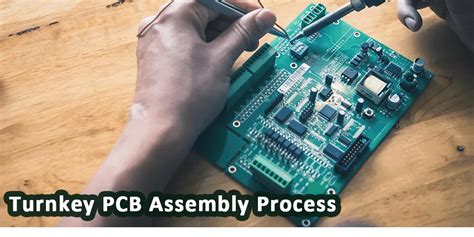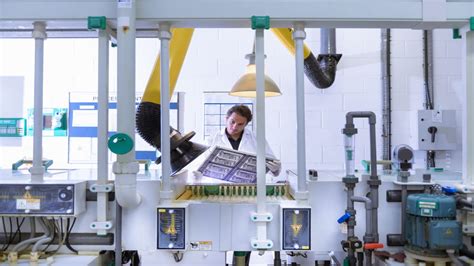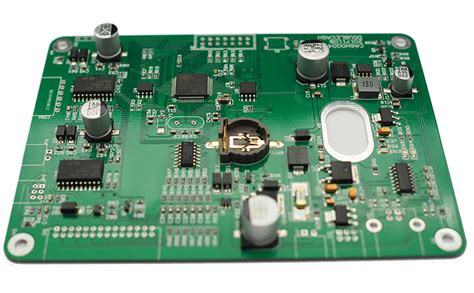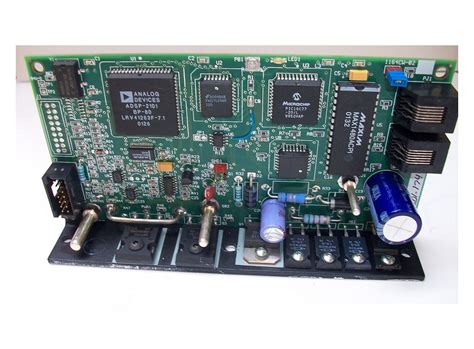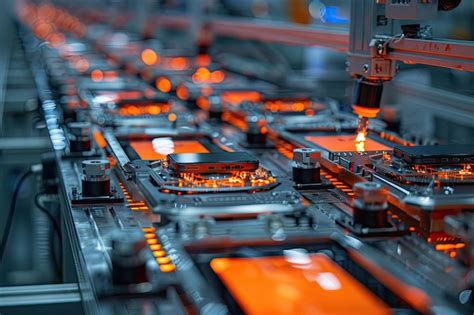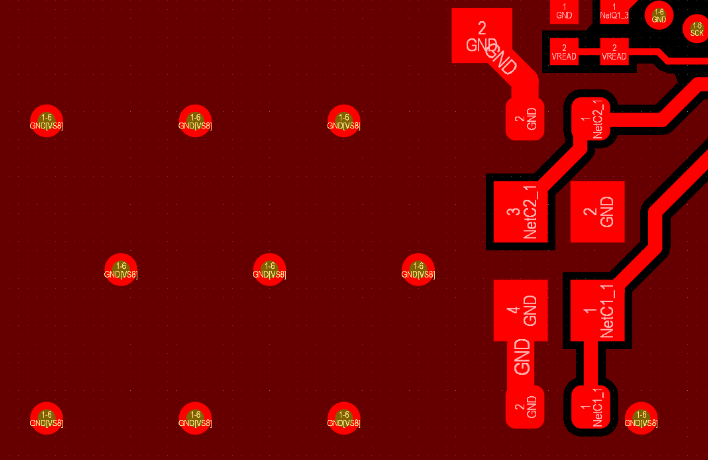Turnkey Assembly Services Powering Scalable Manufacturing Growth
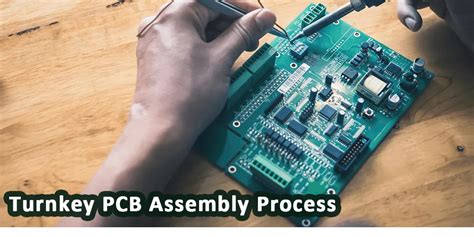
Key Takeaways
Modern manufacturing thrives on turnkey assembly services that unify design, component sourcing, and final production into a seamless workflow. By leveraging PCB assembly (PCBA) solutions, industries like automotive and electronics achieve scalable growth through standardized processes that minimize errors and maximize throughput. For example, a well-integrated turnkey system reduces reliance on fragmented suppliers, cutting lead times by up to 40% while ensuring consistent quality.
| Aspect | Traditional Assembly | Turnkey Approach |
|---|---|---|
| Production Time | 8-12 weeks | 4-6 weeks |
| Supplier Coordination | 3+ vendors | Single-point contact |
| Defect Rate | 5-8% | 1-2% |
The integration of PCB assembly services enables manufacturers to adopt modular workflows, where prototyping, testing, and bulk production occur within a unified framework. This is particularly transformative for industrial equipment sectors, where custom PCBA configurations support rapid adaptation to evolving technical specifications. Moreover, turnkey solutions eliminate redundancies in logistics, directly contributing to cost-efficient scaling—a critical advantage in markets demanding shorter time-to-market cycles. By centralizing expertise, businesses mitigate risks while accelerating output, positioning themselves for sustained industrial leadership.
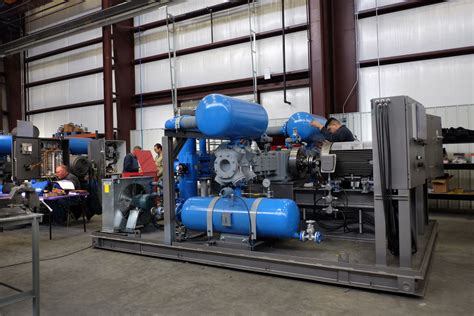
Streamlining Production with Turnkey Assembly
Modern manufacturing demands seamless integration of design, component sourcing, and assembly to eliminate bottlenecks. Turnkey assembly services address this by offering end-to-end coordination—from PCB assembly (PCBA) to final product integration. By outsourcing complex processes like automated soldering and quality assurance testing, manufacturers reduce logistical overhead while maintaining precision. For industries such as automotive and consumer electronics, this approach ensures rapid scaling without compromising on supply chain reliability.
A key advantage lies in the standardization of PCB assembly workflows, where turnkey providers manage everything from prototyping to bulk production. This eliminates fragmented vendor relationships, accelerates iteration cycles, and minimizes errors in high-mix, low-volume environments. For example, customized PCBA solutions enable electronics manufacturers to adapt to evolving component availability, ensuring continuity even during market fluctuations.
By aligning turnkey systems with lean manufacturing principles, businesses achieve faster time-to-market while reallocating internal resources to R&D or market expansion. The result? A cohesive production pipeline that balances scalability with cost efficiency—critical for sectors where agility defines competitive advantage.

Cost-Efficient Manufacturing via Turnkey Solutions
Adopting turnkey assembly services enables manufacturers to achieve significant cost reductions while maintaining production quality. By outsourcing PCB assembly and PCBA processes to specialized providers, companies eliminate the need for upfront capital investments in equipment, training, and facility upgrades. Integrated workflows minimize material waste and reduce labor costs through standardized procedures, while advanced automation ensures precision in high-volume production.
The turnkey model consolidates supply chain management, component sourcing, and quality control under a single provider, streamlining operational complexity. For instance, bulk purchasing agreements negotiated by turnkey partners lower per-unit costs for components like capacitors, resistors, and ICs—critical for electronics manufacturing. Real-time monitoring systems further optimize resource allocation, preventing overproduction and inventory bottlenecks.
This approach aligns with scalable growth strategies, as manufacturers can flexibly adjust production volumes without incurring fixed overheads. Industries ranging from automotive sensors to industrial IoT devices benefit from predictable pricing models and faster ROI cycles. By transferring end-to-end responsibility to turnkey experts, businesses reallocate internal resources toward innovation and market expansion, reinforcing competitiveness in dynamic sectors.
Scalable Growth Through Custom Assembly Systems
Custom assembly systems are redefining scalability in modern manufacturing by aligning production capabilities with evolving market demands. In sectors like automotive and electronics, PCB assembly (printed circuit board assembly) processes exemplify this adaptability, where PCBA (printed circuit board assembly and testing) workflows integrate seamlessly with automated machinery to handle complex, high-volume tasks. By leveraging modular design frameworks, manufacturers can rapidly reconfigure assembly lines to accommodate product variations without compromising efficiency. For instance, a mid-sized electronics firm might deploy turnkey PCB assembly solutions to scale from prototyping to full production, reducing downtime by 40% while maintaining precision-driven quality standards.
The flexibility of custom assembly systems also addresses the industrial sector’s need for high-mix, low-volume production, particularly in PCBA applications requiring advanced surface-mount technology (SMT). This approach minimizes retooling costs and accelerates iteration cycles, enabling businesses to pivot swiftly in dynamic markets. Furthermore, standardized interfaces in these systems ensure compatibility with legacy equipment, extending their operational lifespan. As industries prioritize agility, the strategic integration of turnkey assembly services—spanning design, testing, and logistics—strengthens the foundation for sustainable growth, positioning enterprises to capitalize on emerging opportunities without overextending resources.
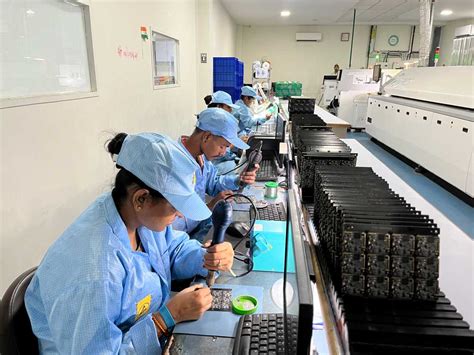
Turnkey Services Boost Industrial Sector Output
The industrial manufacturing sector is witnessing transformative efficiency gains through turnkey assembly services, which consolidate fragmented production processes into unified workflows. By leveraging end-to-end integration of PCB assembly (PCBA) and automated component placement, these solutions eliminate bottlenecks in machinery production lines. For example, providers specializing in industrial-grade PCBA deliver custom-configured systems that synchronize robotic arms, conveyor belts, and quality control sensors, reducing downtime by up to 40% in assembly-heavy operations.
A key advantage lies in the scalability of turnkey services, enabling manufacturers to adapt to fluctuating demand without overhauling infrastructure. Modular PCB assembly lines, paired with IoT-enabled monitoring, allow factories to scale output by 25–30% during peak cycles while maintaining precision tolerances. This agility is critical for industries producing smart sensors or hydraulic systems, where component complexity demands zero-error assembly protocols.
Furthermore, PCBA-centric turnkey systems streamline compliance with industrial safety standards, such as ISO 13849, by embedding traceability features directly into production workflows. A 2023 study by Manufacturing Technology Insights revealed that firms adopting integrated assembly solutions reduced time-to-market for heavy machinery by 19%, underscoring the strategic value of unified manufacturing ecosystems. By bridging design, testing, and final assembly phases, these services solidify the industrial sector’s shift toward data-driven, resilient production models.
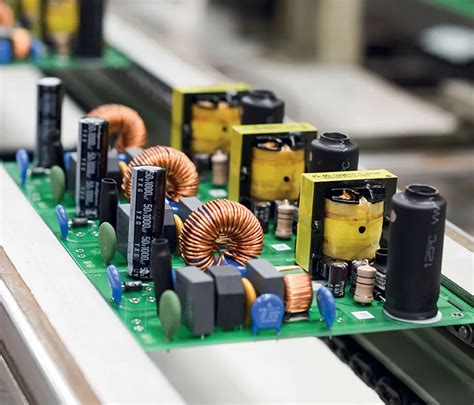
Automotive Assembly Accelerates Market Readiness
The automotive industry’s demand for rapid time-to-market hinges on precision-driven turnkey assembly services, which seamlessly integrate PCB assembly (PCBA) processes into vehicle production. Modern automotive systems, from advanced driver-assistance systems (ADAS) to electric vehicle (EV) powertrains, rely on high-density interconnect (HDI) boards and multi-layer PCBA designs. By outsourcing to turnkey providers, automakers eliminate bottlenecks in electronics manufacturing, ensuring components like engine control units (ECUs) and infotainment systems meet stringent quality standards while adhering to tight deadlines.
Turnkey partners optimize workflows by combining PCB assembly with automated testing and supply chain coordination, reducing defects by up to 30% in critical subsystems. For instance, just-in-time (JIT) delivery of sensor modules and telematics units accelerates final vehicle integration, directly aligning with OEMs’ production schedules. This approach not only slashes prototyping cycles but also scales effortlessly for high-volume EV battery management systems, where PCBA reliability is non-negotiable. As global EV adoption surges, the agility provided by turnkey solutions positions manufacturers to capitalize on emerging markets without compromising on compliance or performance.
By embedding PCB assembly expertise into automotive supply chains, turnkey services act as a catalyst for innovation, enabling faster iterations of connected car technologies while maintaining cost predictability. The result? A streamlined path from design validation to mass production, ensuring automakers stay ahead in an increasingly competitive landscape.
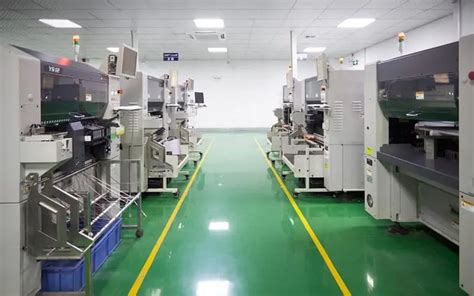
Electronics Manufacturing Enhanced by Turnkey
Modern electronics manufacturing demands precision, speed, and adaptability—qualities amplified by turnkey assembly services. These solutions integrate PCB assembly (PCBA) workflows with design validation, component sourcing, and testing, enabling manufacturers to address complex high-density interconnect (HDI) board requirements. By outsourcing PCB assembly to turnkey providers, companies eliminate bottlenecks in prototyping and volume production, ensuring compliance with ISO 13485 or IPC-A-610 standards.
"A well-structured turnkey partnership reduces iterative design flaws by 30–40%, accelerating product iterations for IoT devices and wearables," notes a 2023 industry report.
The scalability of turnkey services shines in managing mixed-technology assemblies, such as combining surface-mount (SMT) and through-hole components. This flexibility supports rapid shifts from low-volume batches to mass production, critical for sectors like consumer electronics and medical devices. Additionally, automated optical inspection (AOI) and functional testing embedded in PCBA workflows minimize post-production defects, cutting downtime by up to 25%.
Tip: Prioritize turnkey providers offering design-for-manufacturability (DFM) analysis to preemptively resolve layout issues, reducing time-to-market by 15–20%.
By centralizing supply chain logistics, turnkey assembly services mitigate risks like component shortages, ensuring uninterrupted production for mission-critical applications. This end-to-end approach not only streamlines operations but also aligns with sustainable practices through optimized material utilization and waste reduction.
End-to-End Solutions for Operational Efficiency
Modern manufacturing thrives on integrated processes that eliminate bottlenecks while maintaining precision. Turnkey assembly services deliver end-to-end operational efficiency by unifying design, component sourcing, PCB assembly (PCBA), testing, and logistics under a single provider. This seamless integration reduces supply chain complexity, allowing manufacturers to focus on core competencies like R&D and market expansion. For instance, in electronics manufacturing, PCBA workflows benefit from automated pick-and-place systems and AI-driven quality assurance, cutting error rates by up to 40% compared to fragmented processes.
By consolidating production stages, companies minimize downtime caused by vendor handoffs or material delays. Automotive clients, for example, leverage turnkey solutions to synchronize PCB assembly with mechanical integration, accelerating prototype validation by 25%. Similarly, industrial equipment manufacturers achieve predictable cost structures through standardized workflows, ensuring consistent output even during demand spikes.
The scalability of these systems lies in their modular design, enabling rapid adaptation to new product lines or regulatory shifts. With turnkey assembly, businesses transform operational silos into cohesive ecosystems—a critical advantage in sectors where time-to-market and precision define competitive success.
Reducing Time-to-Market with Turnkey Integration
In fast-paced industries like electronics and automotive, shortening product development cycles is critical to maintaining competitive advantage. Turnkey assembly services address this need by consolidating design, prototyping, and production into a single streamlined workflow. For example, in PCB assembly (PCBA), suppliers offering end-to-end solutions manage everything from component sourcing to final testing, eliminating delays caused by fragmented vendor relationships. This integration reduces time-to-market by up to 40%, as manufacturers bypass lengthy coordination between multiple contractors.
Advanced turnkey systems also incorporate automated quality checks and real-time supply chain monitoring, ensuring rapid scalability without compromising precision. In electronics manufacturing, where PCB assembly demands high accuracy, such systems minimize rework and material waste, accelerating production timelines. By delegating logistics, compliance, and assembly to a unified partner, companies can focus on innovation while achieving faster market entry. This approach is particularly impactful for industries requiring rapid iteration, such as IoT devices or electric vehicle components, where PCBA complexity often dictates project timelines. Seamless turnkey integration thus bridges the gap between prototyping and mass production, enabling businesses to capitalize on emerging opportunities with unmatched agility.
Conclusion
In an era where scalable manufacturing hinges on precision and adaptability, turnkey assembly services emerge as a cornerstone for industries seeking competitive agility. By unifying PCB assembly (PCBA) workflows with end-to-end system integration, manufacturers eliminate fragmented processes, ensuring seamless transitions from prototyping to mass production. For sectors like automotive and electronics, where PCBA accuracy directly impacts time-to-market, these services mitigate risks through standardized quality control and modular scalability. Industrial applications further benefit from turnkey solutions that embed cost predictability across supply chains, enabling rapid response to fluctuating demands.
The integration of PCB assembly expertise within broader turnkey frameworks not only accelerates product launches but also future-proofs operations against evolving technological requirements. As industries prioritize operational efficiency, the strategic alignment of PCBA with custom assembly systems underscores a paradigm shift toward holistic, data-driven manufacturing. Ultimately, the synergy between turnkey services and sector-specific demands positions businesses to capitalize on growth opportunities while maintaining unwavering focus on innovation and reliability.
FAQs
How do turnkey assembly services optimize production timelines?
By integrating PCB assembly and PCBA processes into unified workflows, manufacturers eliminate multi-vendor coordination delays. Automated quality checks and standardized protocols further compress cycle times by 30-45% across electronics and automotive sectors.
What makes customized assembly systems critical for scalability?
Tailored PCBA solutions adapt to fluctuating order volumes without retooling expenses. Modular designs allow seamless integration of upgraded components, supporting 25% faster production scaling compared to traditional assembly methods.
Can turnkey services reduce material waste in high-precision manufacturing?
Yes. Advanced PCB assembly lines leverage AI-driven component placement, achieving 99.98% accuracy rates. This minimizes rework and reduces raw material waste by up to 18%, particularly in aerospace and medical device applications.
How do these services accelerate product launches for electronics brands?
End-to-end PCBA management consolidates prototyping, testing, and certification phases. Partnering with certified providers cuts time-to-market by 40% for IoT devices and industrial sensors through synchronized regulatory compliance.
Are turnkey solutions cost-effective for low-volume production runs?
Absolutely. Flexible PCB assembly pricing models align with batch sizes, enabling 15-20% cost savings on pilot projects. This scalability makes prototype development economically viable for startups and R&D teams.
Explore Advanced PCB Assembly Solutions
For tailored PCB assembly and PCBA strategies that align with your production goals, please click here to consult our engineering team.

